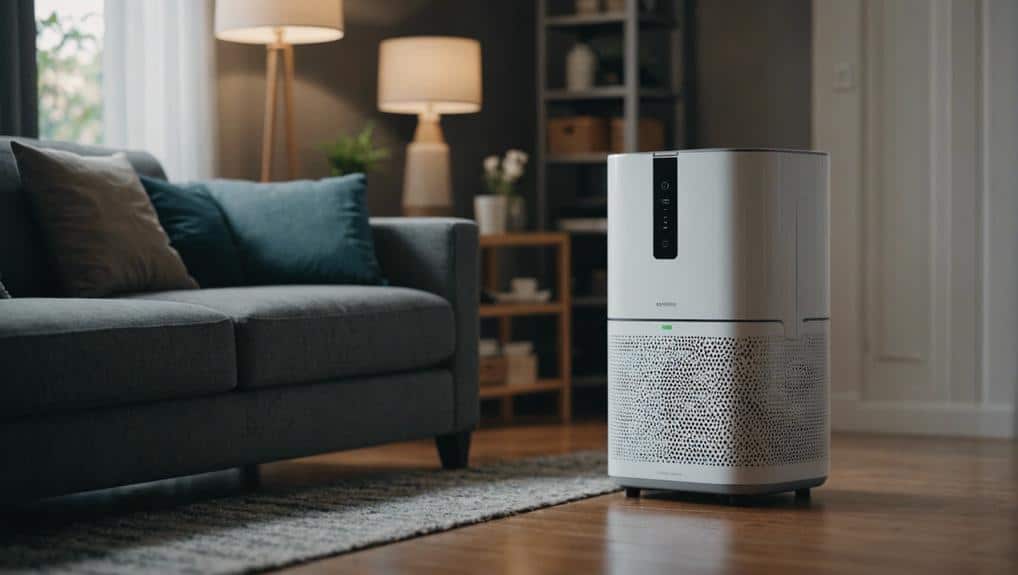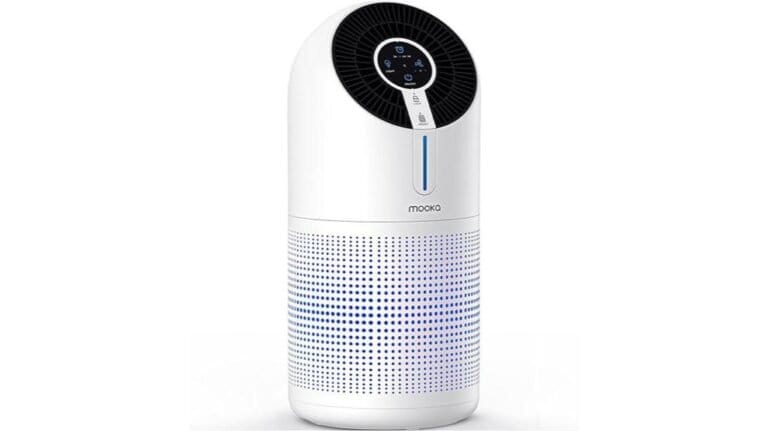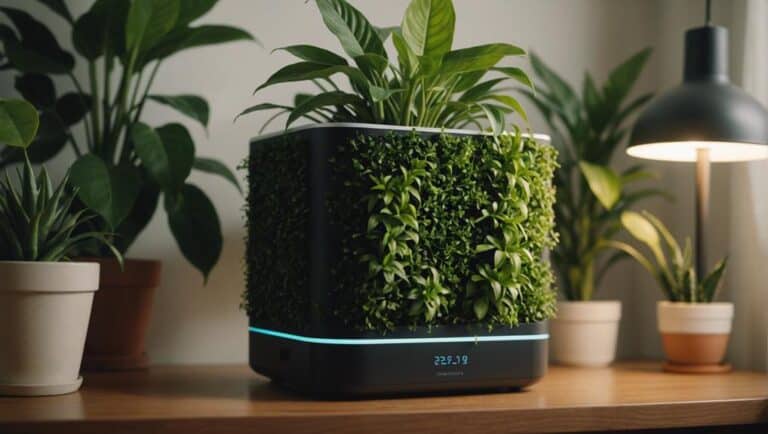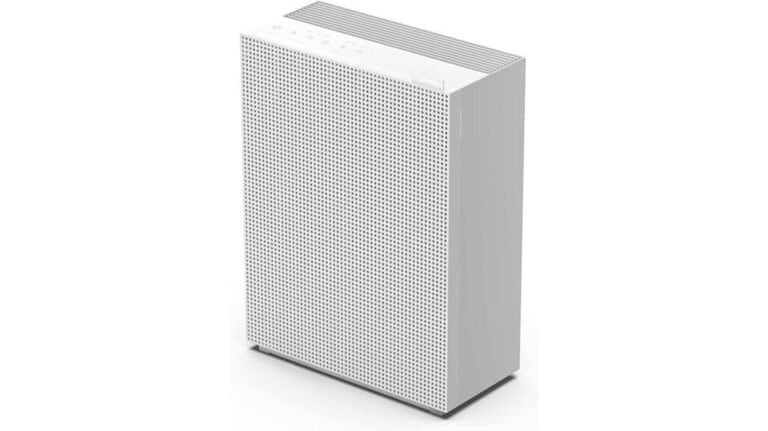Air Purifier Vs Diffuser: the Ultimate Comparison
As we delve into the world of indoor air quality enhancement, the debate between air purifiers and diffusers emerges as an important point of consideration for many.
The distinct functionalities of these devices raise questions about which one truly reigns supreme in creating a healthier and more pleasant living space. Join us as we dissect the nuances between air purifiers and diffusers, shedding light on their unique benefits and potential drawbacks, to help you make an informed decision for your indoor environment.
Functionality and Purpose
When comparing air purifiers and diffusers, it’s important to understand their distinct functionality and purpose.
Air purifiers are equipped with HEPA filters designed to trap airborne particles such as dust, pollen, and pet dander, effectively improving indoor air quality. On the other hand, essential oil diffusers disperse pleasant aromas, promoting relaxation and a soothing ambiance through aromatherapy.
While air purifiers focus on enhancing the air we breathe by removing harmful particles, essential oil diffusers aim to create a more pleasant environment through scent.
It is vital to note that air purifiers excel in eliminating pollutants that can affect respiratory health, while essential oil diffusers can increase the presence of volatile organic compounds (VOCs) indoors. Despite this difference, when used together thoughtfully, air purifiers and essential oil diffusers can work synergistically to create a healthier and more pleasant indoor environment.
Impact on Air Quality
When evaluating the impact on air quality, we observe distinct outcomes from both air purifiers with HEPA filters and essential oil diffusers. Here are key points to take into account:
- Air purifiers with HEPA filters are highly effective in capturing up to 99.97% of fine particles, including allergens, thereby contributing to improved air quality by reducing airborne contaminants.
- On the other hand, essential oil diffusers, while offering aromatherapy benefits, can increase volatile organic compounds (VOCs) in the indoor environment, potentially affecting air quality negatively.
Air purifiers play an important role in creating a healthier indoor environment by efficiently reducing allergy symptoms through the removal of airborne allergens, resulting in better overall air quality control.
The choice between an air purifier and a diffuser ultimately depends on the desired outcome for air quality management. By understanding the unique impacts of each device, individuals can make informed decisions to maintain a healthy indoor environment.
Health Benefits Comparison
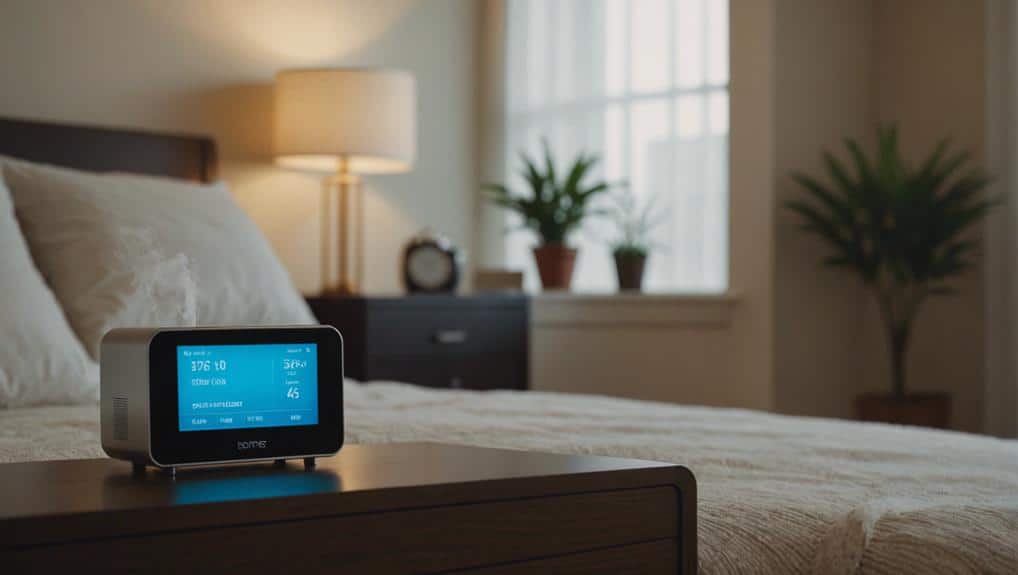
Comparing the health benefits of air purifiers and essential oil diffusers reveals distinct advantages in improving indoor air quality and promoting emotional well-being. Air purifiers, particularly those equipped with HEPA filters, excel in capturing up to 99.97% of airborne allergens like dust, pollen, and pet dander, thereby reducing allergy symptoms and enhancing respiratory health. On the other hand, essential oil diffusers offer aromatherapy benefits, promoting relaxation, mood enhancement, and alleviating anxiety and depression. The use of essential oils in diffusers can also enhance sleep quality and create a more soothing indoor environment.
| Health Benefits | Air Purifiers | Essential Oil Diffusers |
|---|---|---|
| Allergy Reduction | Capture up to 99.97% of airborne allergens | Promote relaxation |
| Respiratory Health | Remove harmful microorganisms and pollutants | Enhance mood |
| Indoor Environment | Improve indoor air quality | Create soothing atmosphere |
Operational Differences
When comparing air purifiers and diffusers, it’s important to understand the functionality variances and usage disparities between the two.
Air purifiers work by filtering out pollutants to improve air quality, while diffusers disperse essential oils for aromatherapy benefits.
Recognizing these operational differences can help individuals choose the right device for their specific needs.
Functionality Variances
Air purifiers and diffusers exhibit distinctive operational variances in their primary functions and benefits. When comparing air purifiers with essential oil diffusers, it’s important to understand how each device operates to meet specific needs:
- Air purifiers target airborne contaminants like pet dander, pollen, and dust particles, improving indoor air quality.
- Diffusers disperse essential oils into the air, promoting relaxation and mood enhancement through aromatherapy.
- Air purifiers equipped with HEPA filters can efficiently capture up to 99.97% of fine particles, while diffusers may elevate volatile organic compounds (VOCs) levels indoors.
Understanding these operational differences allows users to choose the device that best fits their control over air quality, aromas, and overall well-being.
Usage Disparities
How do air purifiers and diffusers differ in their operational functions and impact on indoor environments? Air purifiers focus on purifying the air by trapping pollutants such as dust and harmful microorganisms, directly improving air quality and benefiting health conditions like allergies and asthma. On the other hand, diffusers primarily add fragrance through dispersing essential oils, enhancing mood through aromatherapy. The table below summarizes the key disparities between air purifiers and diffusers:
| Aspect | Air Purifiers | Diffusers |
|---|---|---|
| Function | Purify the air by trapping pollutants | Add fragrance through dispersing essential oils |
| Impact | Improve air quality, particularly for allergies and asthma | Enhance mood through aromatherapy |
| Mechanism | Use filters like HEPA, activated carbon, UV light, or ionizers | Rely on oils for dispersion |
Maintenance and Upkeep
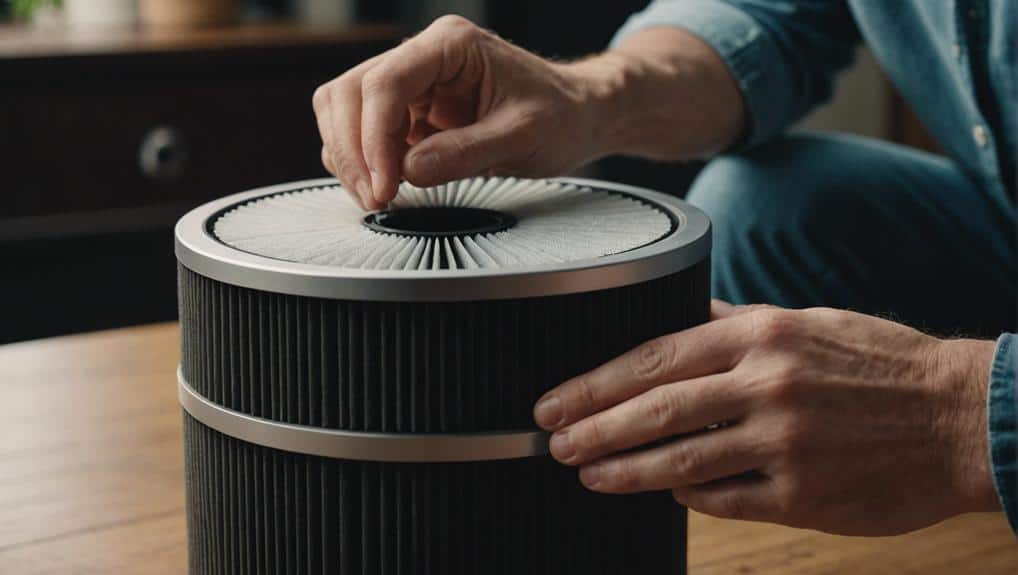
Regular maintenance is essential to guarantee the best performance and longevity of both air purifiers and essential oil diffusers. When it comes to upkeep, there are key tasks that should be performed regularly to ensure peak functioning:
- Filter Replacements: Air purifiers typically require filter replacements every 6 to 12 months as per manufacturer’s guidelines. This ensures that the purifier continues to effectively remove pollutants from the air.
- Cleaning: Essential oil diffusers need to be cleaned regularly with water and vinegar to prevent clogging and maintain efficiency. Following the cleaning instructions provided by the manufacturer is vital.
- Following Manufacturer’s Guidelines: Regular maintenance of air purifiers and diffusers is necessary. Neglecting maintenance can lead to decreased performance and potentially harmful effects. Adhering to the manufacturer’s guidelines for cleaning and replacing parts is crucial for maximizing the lifespan and performance of both devices.
Using Both Devices Together
When we combine air purifiers and diffusers, we can enjoy the benefits of improved air quality and enhanced aroma distribution in our indoor spaces.
This synergy helps manage the indoor environment effectively, creating a more pleasant living or working atmosphere.
Combined Benefits for Air Quality
Combining an air purifier with a diffuser yields a dual benefit of clean, purified air and pleasant aromas. This powerful combination allows us to take control of our indoor air quality by effectively removing pollutants and adding soothing scents through the use of essential oils.
The key advantages include:
- Improved Air Quality: The air purifier eliminates allergens and pollutants, ensuring the air we breathe is clean and healthy.
- Aromatherapy Benefits: By diffusing essential oils, we can create a more relaxing and inviting atmosphere while enjoying the therapeutic effects of the oils.
- Synergistic Effect: The synergy between the air purifier and diffuser promotes a healthier indoor environment, enhancing both physical and emotional well-being.
Enhancing Aroma Distribution
In order to optimize the combined benefits of both devices, we strategically enhance the distribution of pleasant aromas by utilizing an air purifier and diffuser in tandem. By combining the air purifier’s ability to clean the indoor environment with the essential oil diffuser‘s aromatic benefits, we achieve a balanced and fresh atmosphere that promotes overall well-being.
The air purifier helps neutralize strong scents from the diffuser, ensuring a harmonious blend of clean air and therapeutic aromas. Alternating between the two devices throughout the day allows us to maximize the health benefits of clean air and aromatherapy.
It’s crucial to take into account the compatibility of scents and air-cleaning capabilities to fully capitalize on the effectiveness of this dual-function system.
Managing Indoor Environment
Utilizing both devices together enhances the indoor environment by creating a harmonious blend of clean air and pleasant aromas. This combination allows for better control over the indoor air quality, guaranteeing a more comfortable and inviting space.
Here are three ways in which using air purifiers and diffusers simultaneously can benefit the indoor environment:
- Efficient Pollutant Removal: Air purifiers work to eliminate pollutants, while diffusers add soothing scents, creating a balanced atmosphere.
- Promotes Relaxation: The use of essential oils in diffusers can promote relaxation and stress relief, enhancing the overall ambiance indoors.
- Continuous Improvement: Alternating between the air purifier and diffuser throughout the day ensures a continuous cycle of clean air and aromatherapy benefits.
Conclusion
In conclusion, both air purifiers and diffusers offer unique benefits for enhancing indoor environments.
While air purifiers focus on removing pollutants to improve air quality and respiratory health, diffusers create a relaxing ambiance through aromatherapy.
By understanding the distinct functionalities and purposes of each device, individuals can effectively utilize both to create a healthy and soothing indoor atmosphere.
It’s important to consider the specific needs and preferences of each individual when deciding which device to use or whether to use both together.
